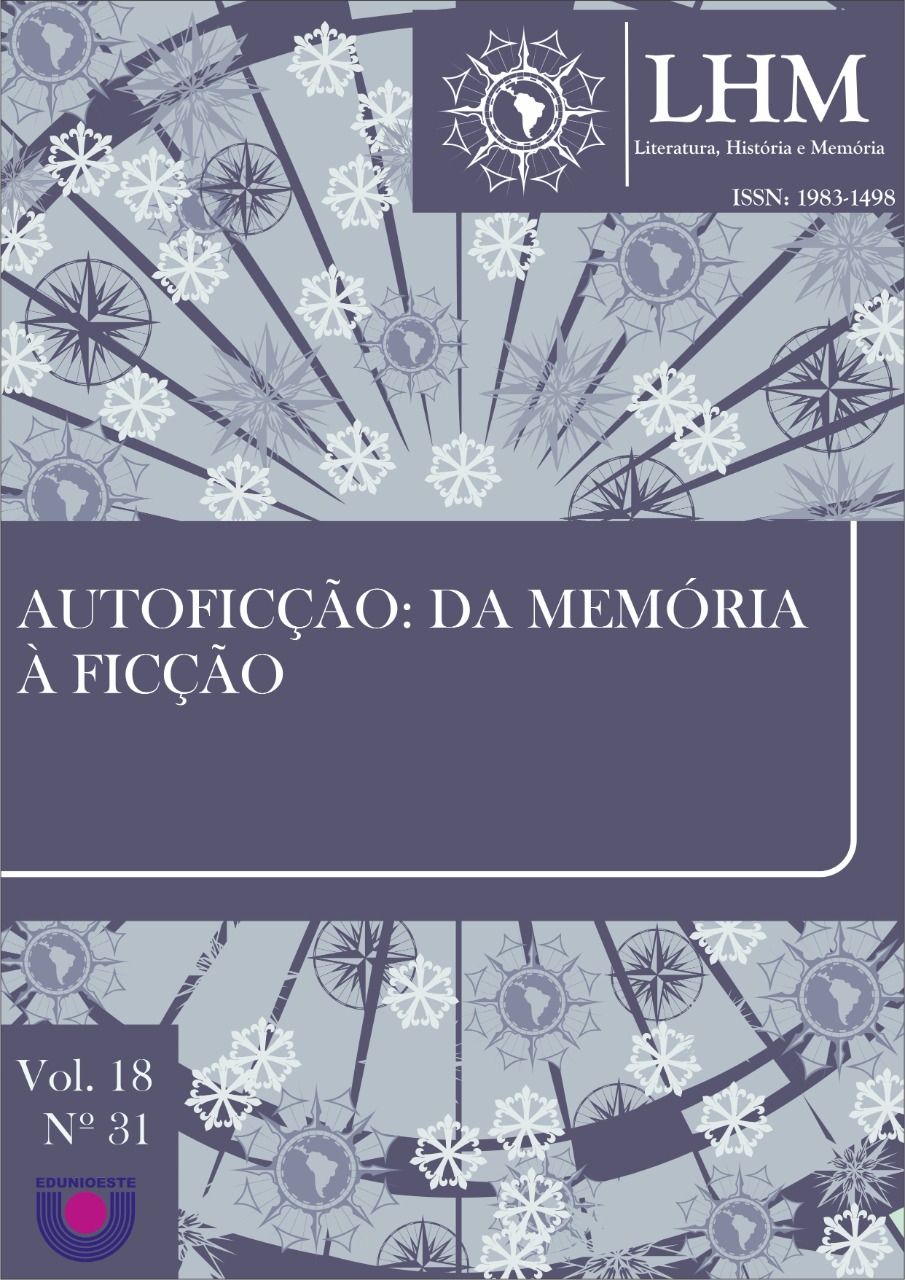The argentine post-dictorial autofiction
a look at works by Patricio Pron and Mariana Eva Perez
DOI:
https://doi.org/10.48075/rlhm.v18i31.28876Abstract
This paper’s main objective is to promote a discussion about post-dictatorship writings in Argentina, focusing on the analysis of the works El espíritu de mis padres sigue subiendo en la lluvia(2011), by Patricio Pron, and Diario de una princesa montonera–110% verdad(2012), by Mariana Eva Perez, whereas both are autofictionworks written by the offspring of Argentine militants who fought against the country's last and bloodiest military dictatorship (1976-1983). Based mainly on the concepts of autofiction(DOUBROVSKY, 2011) and postmemory(HIRSCH, 2012; SARLO, 2007), the analyzes made herein aim to examine the ways in which people who were in their childhood during the dictatorship period have dealt—through fiction—with the pain, emptiness, and trauma caused by State terrorism. Therefore, we seek to observe how Memory, History and Fiction come together in the selected works as an arduous effort of excavation of the past and of reconstitution and reinvention of life; and how the narrators, with their autofictional texts, fulfill a “duty of memory”, by transmitting to others their stories and the history of their country and their ancestors.
Downloads
Published
How to Cite
Issue
Section
License

This work is licensed under a Creative Commons Attribution-NonCommercial-ShareAlike 4.0 International License.
Aviso de Direito Autoral Creative Commons
Política para Periódicos de Acesso Livre
Autores que publicam nesta revista concordam com os seguintes termos:
1. Autores mantém os direitos autorais e concedem à revista o direito de primeira publicação, com o trabalho simultaneamente licenciado sob a Licença Creative Commons Attribution que permite o compartilhamento do trabalho com reconhecimento da autoria e publicação inicial nesta revista.2. Autores têm autorização para assumir contratos adicionais separadamente, para distribuição não-exclusiva da versão do trabalho publicada nesta revista (ex.: publicar em repositório institucional ou como capítulo de livro), com reconhecimento de autoria e publicação inicial nesta revista.
3. Autores têm permissão e são estimulados a publicar e distribuir seu trabalho online (ex.: em repositórios institucionais ou na sua página pessoal) a qualquer ponto antes ou durante o processo editorial, já que isso pode gerar alterações produtivas, bem como aumentar o impacto e a citação do trabalho publicado (Veja O Efeito do Acesso Livre).
Licença Creative Commons
Esta obra está licenciada com uma Licença Creative Commons Atribuição-NãoComercial-CompartilhaIgual 4.0 Internacional, o que permite compartilhar, copiar, distribuir, exibir, reproduzir, a totalidade ou partes desde que não tenha objetivo comercial e sejam citados os autores e a fonte.


